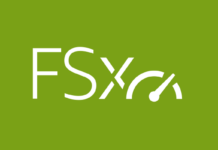Since the European Union’s Digital Services Act (DSA) was enacted, there has been a significant push by companies to align their operational frameworks with the new regulations. One such company, Meta, the parent company of Facebook and Instagram, has been diligently working to ensure compliance with the DSA’s stringent requirements. This involves an enormous effort to adapt and enhance their safety and integrity systems across various platforms.
In 2023, Meta established a dedicated cross-functional team made up of over 1,000 individuals. This team was tasked with developing and implementing solutions to meet the DSA’s requirements. Their efforts have resulted in increased transparency about the functioning of Meta’s systems and have provided users with more control over their experiences on Facebook and Instagram. An important part of this initiative was the introduction of new measures to mitigate potential risks associated with Generative AI content, a technology that can create text, images, or videos.
Recently, Meta released a series of reports that document their progress in complying with the DSA. These reports include the findings from an independent audit of Facebook and Instagram. This audit evaluated the measures Meta has put in place to ensure adherence to the DSA. The audit process was extensive, involving a dedicated team of over 40 people who spent more than 20,000 hours preparing documents, responding to requests for information, and engaging in discussions with the independent auditor. This is in addition to the thousands of hours spent by Meta’s broader team building, implementing, and managing the systems required to comply with the DSA.
Meta has approached this compliance process with seriousness and rigor, and they are keen to share the findings from their efforts.
### Our Progress Complying with the DSA
The audit’s findings were largely positive. Meta had solutions in place for all 54 sub-articles that received conclusions, and over 90% of these were deemed to be fully compliant. The remaining 10% were categorized as “except for,” indicating that the auditor believed some adjustments were necessary for full compliance with the DSA. Notably, Meta did not receive any “adverse” conclusions, which would have indicated a failure to meet the required compliance standards.
In addition to the 54 sub-articles, there are 14 more sub-articles that are currently under investigation by the European Commission. As a result, the auditor could not provide a formal conclusion for these. Meta continues to engage in discussions with the Commission and is confident that the solutions they have in place meet the necessary requirements.
### Making Adjustments Where Necessary
The audit identified five “except for” findings across Facebook and Instagram, grouped into three broad categories where implementation did not fully meet the requirement. Meta has already addressed two of these findings. The first, resolved in April 2024, concerned Meta’s Ad Library, which lacked context regarding why certain advertisements were removed. The second issue, addressed in February 2024, involved Facebook Dating users not having the option to opt-out of recommended content based on their activity.
For the three remaining findings, the audit concluded that Meta needed to provide additional information in parts of their DSA Transparency Report. This includes detailed breakdowns of content moderation measures by the type of violation. Meta is actively working on solutions to address these findings, as outlined in their Implementation Reports, which detail plans to implement the audit’s various recommendations.
### A Journey of Continuous Improvement
From the outset, Meta has supported the DSA’s goals and the establishment of a unified regulatory framework that effectively safeguards people’s online rights while fostering innovation. Meta has engaged in productive discussions with the European Commission throughout this process and looks forward to continuing transparent collaboration as the DSA evolves.
The results of the independent audit, along with Meta’s accompanying Implementation Reports, demonstrate that Meta has measures in place for all areas covered by the audit. In the few instances where adjustments were suggested, Meta has taken appropriate steps and implemented changes. This reflects Meta’s ongoing investment in safety and security and the hard work of thousands of employees dedicated to meeting the DSA’s requirements. Meta acknowledges that there will always be more work to do and plans to use the conclusions from these annual audits to enhance their systems and protect users.
Overall, Meta’s efforts to comply with the DSA highlight the company’s commitment to transparency, user safety, and regulatory adherence. As digital landscapes continue to evolve, Meta’s proactive approach serves as an example of how companies can balance innovation with responsibility. These efforts are not just about meeting legal requirements but are also about building trust and ensuring a safe online environment for all users.
For more Information, Refer to this article.




































